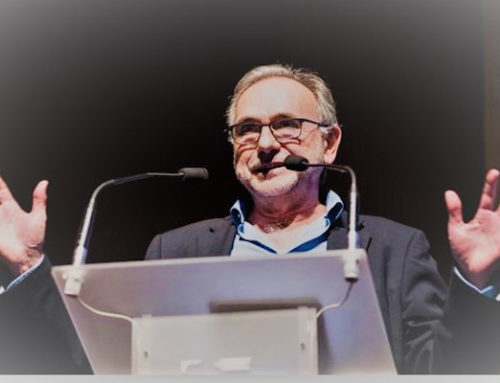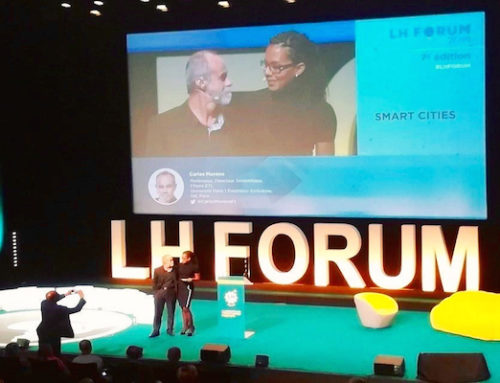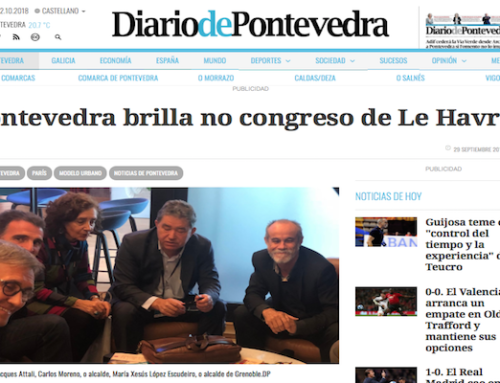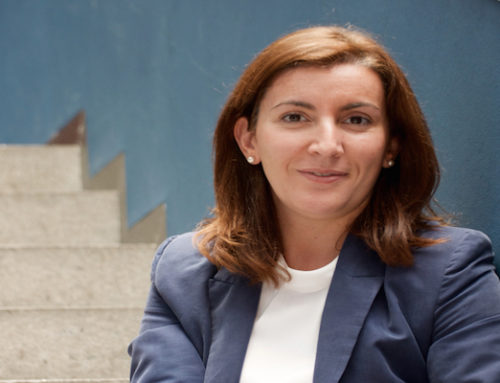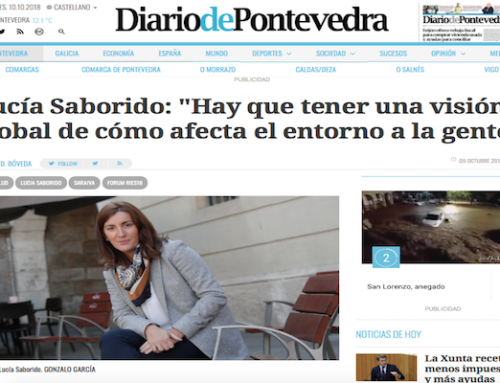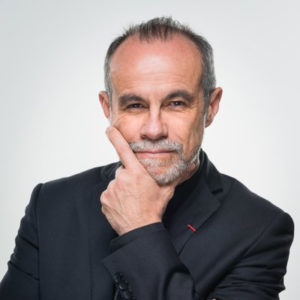
Carlos Moreno
Carlos Moreno participates as a speaker at the III RIES18 Forum in order to revolutionize the concept of Smart City, transferring the focus of attention to citizens and the new city of the 21st century that he conceives as alive, humane, democratic, with technology at the service of citizens, tolerant, inclusive, resilient …
Moreno is a researcher, professor and expert in intelligent control of complex systems, professor of Territory at the Paris I-Pantheon Sorbonne University, president of the InTi Foundation (Innovation, Technology and Investment) and advisor to the mayor of Paris, Anne Hidalgo.
Moreno has been part of the organization of the LH International Forum on Positive Economy in Le Havre organized by ‘Positive Planet’, a foundation chaired by Jacques Attali (with whom he collaborates for the presence of topics of his interest) that was held in September in the norman city.
His participation in Le Havre served as a prelude to the III RIES18 Forum where he will be at the end of October. In fact, he has invited Le Havre to several politicians, professionals and experts from Spain and the rest of Europe, with whom he will again discuss smart cities at this international meeting in Pontevedra.
Concept by Carlos Moreno at the III RIES18 Forum
“At the moment of the technological revolution, we see an infinity of urban possibilities open up before us. Tomorrow’s city is invented today, and we dream it smarter, more effective, more fluid … but only a city that puts citizens at the center of their concerns, is at the same time responding to the many challenges of our urban future . It is constituted around citizenship, on a territory that is its own.
So there are no city models, there are sources of inspiration. Urban hyperconnectivity must above all allow citizens to be socially innovative, be proud to live in their city and invent new forms of social bond. Along with the digital revolution, two other levers are indispensable: urban reinvention and social inclusion. The city is at the crossroads between a multitude of needs and social uses.
The challenges of social, urban and technological innovation concern our lives on a daily basis around issues such as housing, mobility, education, work, health. How is well-living built, with good habitat, mobility and the workplace? Is it really necessary, for example, to travel so much to work, to learn or to treat yourself? What is the link between the inhabitant, the city center and the periphery? Public services and private supply? These challenges lead to real transformations of our way of life, and of our professional relationships, as well as to social and urban transformations, crossed and amplified by the impact of the technological revolution. The question of energy management, the creation of energy-efficient homes, green mobility, security, personalized health, access to culture is thus strongly presented.
And, through these reflections, it is a true lively city, the one that forms before our eyes, when we speak of an inclusive, resilient, sustainable city as an engine of innovation. Considering that the city will be smart developing highly technological solutions, and that the latter will provide solutions to complex problems, without involving citizens, leads to a dead end. The smart, inclusive and humane city is above all a territory where services, uses and a common good are built that respond to the fundamental needs of its inhabitants and their search for well-being.
The role of citizens
“Urban intelligence and new citizen uses, multiplied by social networks and new technologies, allow new initiatives to emerge to get involved in change. The relationships between administered and governments change on the effect of these technologies, and the government and the way of doing politics, also change. There is clearly an evolution in relation to traditional representative democracy. Making sense of the city, at the time of the energy transition, of decentralized energies, of new forms of mobility, of the development of neighborhood practices, of cities unbreathable by pollution, is above all a social duty.
Without this coherence, we will not have the indispensable citizen support to operate a fundamental change because the main value is in the uses, in the creation of social value, not in the technology itself. Taking into account that the city is an open-air laboratory of ideas and exceptional experiences, it is essential to be aware of the main challenge of proposing new urban uses and services. A new urban world emerges at the crossroads between urban planning, sociology, architecture, the economy, technologies and beyond, all the transdisciplinary and systemic knowledge that contributes to forging new paradigms.
The city is above all a territory of life and encounters, and in the 21st century the convergence of social uses, ubiquitous technologies and new models of sharing emerge new life experiences and give rise to new uses and unpublished services. in all fields. Vehicle sharing, multimodal mobility, decentralized energies, valuation of heritage, urban public spaces for coexistence, personalized public health, better quality of life for the third and fourth age, massive online education, open spaces for culture, art and leisure, democracy Participatory on open government systems, collaborative information systems: here are some examples of services that are emerging today and that will make the city of tomorrow a living city, combining urban intelligence, social inclusion, resilience and technological innovation.
However, we still need to understand the essential, the cycle of life in the city. Indeed, we can compare the city with a living being: it is complex and has its own metabolism, born from the interaction of multiple systems that constitute it. It is also, therefore, very fragile and at the mercy of violent and frequent crises that remind us of this characteristic. In the age of the multitude, in this ubiquitous time when profound changes take place in the geopolitics of nations, it is embedded in the history of cities, in their government, as well as in their role against the States. Taking an interest in the intelligence of cities is, above all, taking an interest in their identity, in their socio-economic, cultural, and ecological relationships, and whose demands are becoming stronger in terms of governance: mobility, security, social housing, energy challenges, infrastructure, networks, public spaces, local economy, culture, leisure, taxation, attractiveness.
At the heart is the quality of life of the inhabitants, because the complexity of cities with increasing urbanization, the growth of the power of citizens, the increase in needs to be met in relation to the demographic explosion, the pressure due to the decrease in resources, but also the visible socioeconomic fractures in the social fabric, create serious life difficulties for large swaths of urban population that live more and more in poverty and precariousness.
The exponential growth of cities consumes resources, further weakening the already considerably affected environment. New vital needs are imposed in the food, health, climate, mobility, etc. demanding new responses in these contexts of strong evolution, where nature is threatened more than ever. In parallel, with the ubiquitous revolution, the world has surpassed the figure of 5 billion connected devices and, by 2020, the number will have tripled. The relationships between people, regardless of their habits, uses and customs and the region of the planet where they live, have been profoundly modified by the instantaneous nature of exchanges through this ubiquitous presence. New technologies deeply and steadily imprint their brand on the close environment and the daily life of each one. Through the 17 sustainable development goals (ODD) set by the UN, No. 11 reminds us of the imperative need to make cities and human settlements open to all, safe, resilient and sustainable. ”

